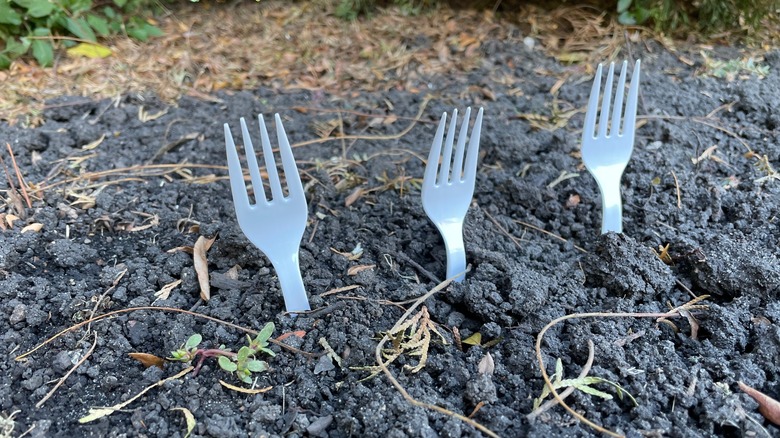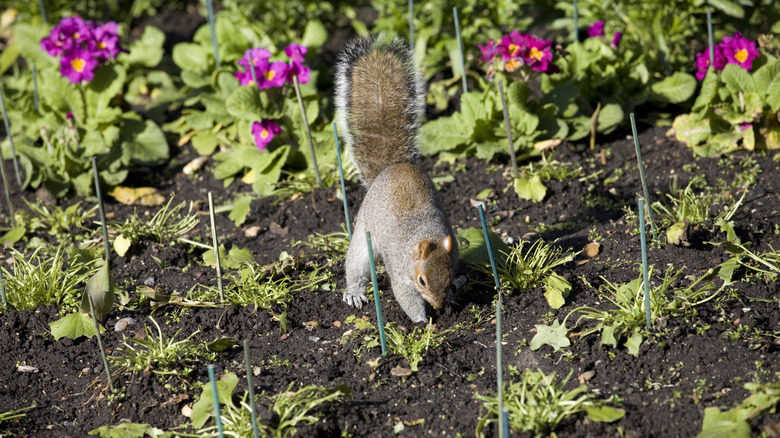Here's Why There Are Plastic Forks In People's Veggie Gardens (& If You Should Try It)
No, those white forks sticking out of the soil aren't the result of someone trying to grow a crop of plastic utensils. Actually, it's a trendy hack that purports to keep away bothersome pests. Most gardeners know how difficult it can be to try to keep squirrels out of a vegetable garden, so testing any new trick might feel like a no-brainer. But before you do, consider some of the downsides — like whether you really want more microplastics in the garden. Also, determined animals like squirrels might find ways around these barriers.
The plastic fork hack is simple: Tuck plastic fork handles in the ground near your vegetable crops, tines upward, to keep squirrels, rabbits, chipmunks, or cats from digging up your plants. While there's no hard scientific evidence this even works, it's true that most animals don't like to dig in places where the ground is obstructed in some way. Furry vegetable thieves won't want to risk a sharp poke and will look for an easier target. That's why some gardeners swear by the plastic fork hack.
If you want to try it, you'll need quite a few plastic forks. Four or five plastic forks might be needed to protect just a few sprouts. Put the forks no more than 3 to 4 inches apart so that there's minimal space in between. Use them to surround plants, protect rows, or block any pathways that animals might use to get around your vegetable garden.
Some downsides to using plastic forks in the yard
While this plastic fork trick might seem like an easy option, remember that foragers in your yard are smart and determined. These animals could learn ways around the best laid forks, finding holes or alternate routes. Forks that get pushed down or are toppled by wind or rain will quickly become ineffective, too. So you might have to adjust your fork fence from time to time.
And then there's the tricky problem of microplastics. Sure, plastics take a notoriously long time to decompose — like many decades or hundreds of years, even — but they do degrade, depending on light and heat. Eventually, the plastic can leech into the soil. These microplastics then seep into vegetable roots and the vegetables themselves. To avoid plastic in the soil, you can always try a sharp-pointed barrier defense made of hardware cloth or chicken wire pointy-side up in the soil. This can protect flower beds and offer a simple solution to keep squirrels away from your plants.
A better layer of protection could be worth considering, too. Putting obstacles or cages around certain vegetables could keep hungry animals at bay. More robust barriers, including bird netting and other full covers, are likely the best way to keep your vegetables safe. If you're looking for other options to battle the small animals stealing bites from your vegetables, you can always try posting a predator decoy, like mounting a plastic owl.

